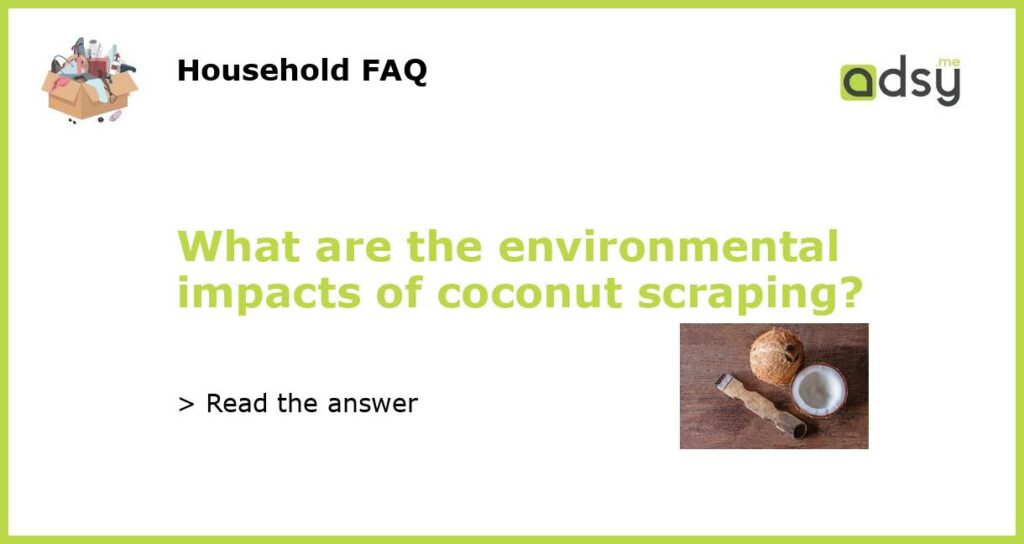The Growing Demand for Coconuts and Its Impact on the Environment
Coconut is widely known for its multiple uses, from its meat and water to the oil extracted from its flesh. The growing demand for coconut-based products, however, has led to serious concerns on its environmental impact, particularly with the process of coconut scraping. Coconut scraping is the process of removing the coconut flesh from the hard shell. While it is an important process to produce coconut-based products, it also has several environmental impacts.
The Impacts of Coconut Scraping and Its Waste Products
Coconut scraping generates a lot of waste products such as coconut husks and shells. These waste products are often left to decay, and their decomposition produces methane, a potent greenhouse gas that contributes to global warming. Additionally, the practice of burning coconut shells and husks contributes to air pollution, which can be dangerous to local populations.
The Effects of Coconut Agriculture on Biodiversity
The increased demand for coconuts has led to extensive coconut agriculture which can harm biodiversity. Coconut trees are often grown in monoculture (planting only one type of crop in a specific area), which can disrupt soil and water ecosystems. The removal of other plant and animal species in coconut plantations can result in a loss of biodiversity and ecosystem services that those species provide.
The Impact of Coconut Processing on Local Communities
Coconut processing is often labor-intensive, with many workers being exposed to health and safety risks, such as respiratory problems from inhaling coconut fibers. In addition to the risks to workers, the extraction of coconut water can also lead to a shortage of clean water for local communities. Coconut processing plants consume huge amounts of water, leading to issues with water conservation, water pollution, and scarcity.
Promoting Sustainable Practices in Coconut Agriculture and Processing
While the demand for coconut-based products continues to grow, there are ways to mitigate the impacts of coconut scraping on both the environment and local communities. Promoting sustainable practices, such as intercropping (planting multiple crops in the same area), reducing waste through recycling and reusing coconut by-products, and implementing worker safety standards can improve both the environment and the lives of people involved in coconut production. Ultimately, it is up to consumers to make informed choices and support companies that practice sustainable coconut agriculture and processing.






